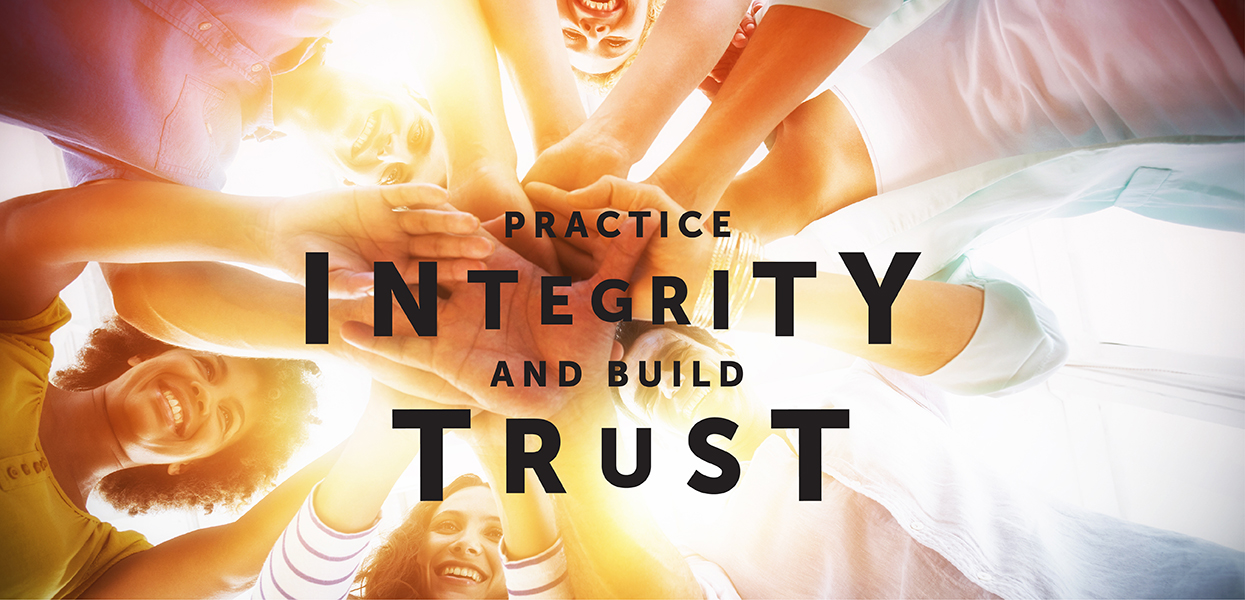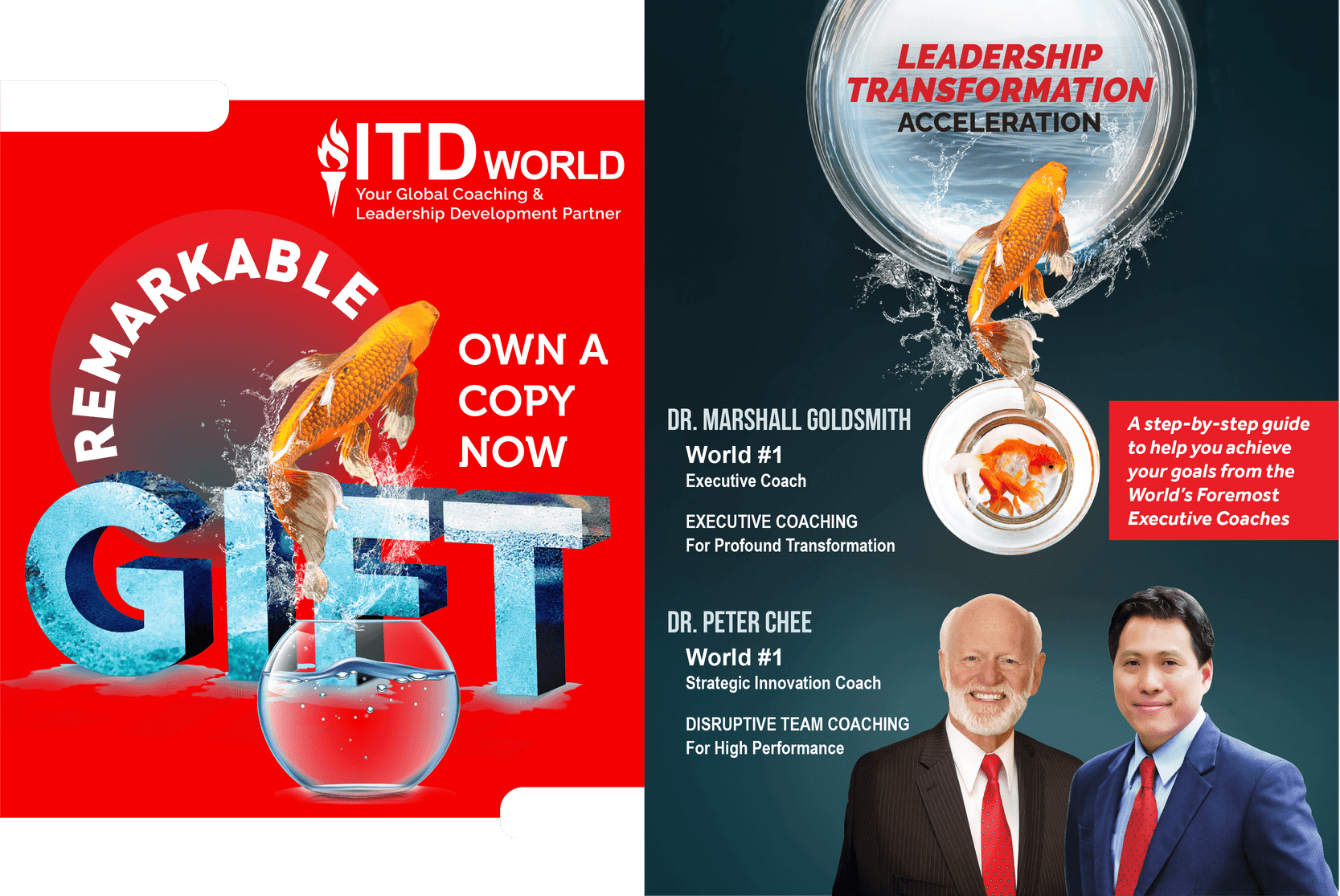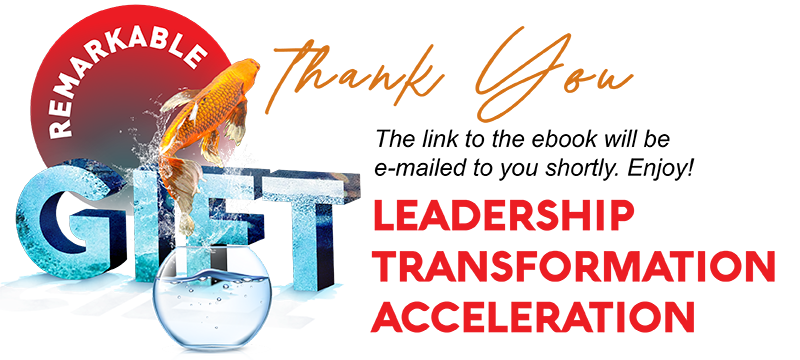


By Dr Peter Chee and Dr Jack Canfield
Trust is the thread with which the fabric of all relationships is woven. It is the glue that binds and the oil that lubricates all relationships. As explained previously, maintaining authentic rapport and humor provides the spark needed to get the coaching relationship started.
Touching the heart with care and sincerity paves the way for greater understanding and further strengthens that relationship. Practicing integrity and building trust complements these and brings the relationship to an even higher level, one that will positively impact the success of the coaching experience. With a foundation of integrity and trust, the client will be more receptive, engaged, and committed.
Integrity meanwhile is the inner sense of “wholeness” deriving from qualities such as truthfulness and consistency of character, actions, principles, and values. People with integrity stand for something, make and keep commitments to themselves and others, and remain open. They “walk the talk time and again, Relationships based on integrity are the ones in which we are real and we don’t have to pretend to do something or be someone else.
The power of integrity in coaching is the result of a relationship that is transparent. When the coach is honest, transparent and vulnerable, it makes it easier for the client to be open, honest, and vulnerable too. A good exercise in the early stages of a coaching relationship is for the coach to share some stories. Make a point to include not only success stories, but also failures, problems, and the lessons learned.
This set the stage for the client to appreciate the value of openness and deep sharing. They gravitate to be more sincere and honest about the real issues to be confronted and resolved. This also makes it safer for your client to talk about their fears, failures and challenges.
Now, trust operates on two levels: emotional and rational. Emotional trust focuses on: affection, liking, interest, confidence, gratitude, security, acceptance, admiration, respect, appreciation, and contentment. On the other hand, rational, cognitive, and logical trust are grounded in assessments of a party’s credibility, which play significant roles in the decision to trust.
To gain credibility and earn trust, coaches and leaders need to begins with working on their character and competence. The client will then find you credible, and therefore potentially worthy of his trust, if he is comfortable with who you are (character) and what you are capable of doing (competence).
When the client believes that your intent is good, and your actions are consistent with that intent, the client determines that you are a person of good character; he will be inclined to trust you. Character is the personal minimum requirement for trust because it is the filter through which your competency will be assessed.

I have no special talents. I am only passionately curious.
– Albert Einstein


When you practice integrity and build trust, you increase the emotional bond between yourself and the client and increase the level of commitment in the coaching relationship. It is easy to say that you are committed, but unless you back up your words with action and competence, it is wishful thinking or self-serving lip service. Action and follow-through demonstrate the level of true commitment in the coaching relationship. When you bestow the gifts of integrity and trust on the people you coach, you will reap the benefits in abundance.

The glue that holds all relationships together, including the relationship between the leader and the led is trust, and trust is based on integrity.
– Brian Tracy

TRANSFORMATIONAL COACHING QUESTIONS
EUREKA VIDEO
LATEST HAPPENINGS AT ITD WORLD
ITD World is happy to announce that we are spreading our wings to another continent. Our latest strategic partnership is Progredi Human Capital Consulting who collaborate with us in the Americas, including the entire South America region. This move is a strategic global collaboration to make the world a better place by positively developing and transforming leaders who will multiply their value and influence other leaders globally.
FURTHER RESOURCES



